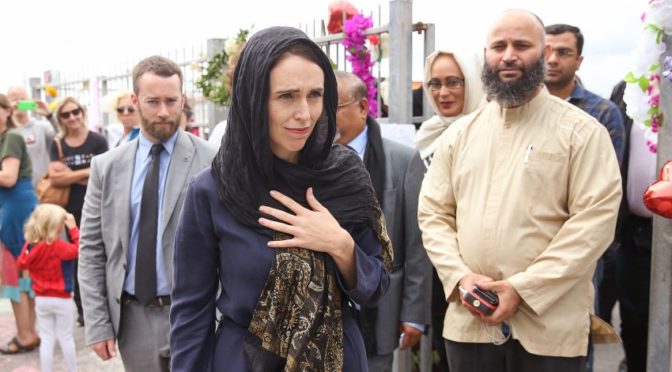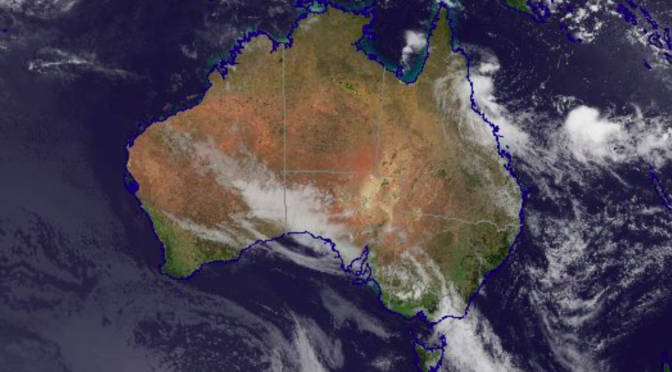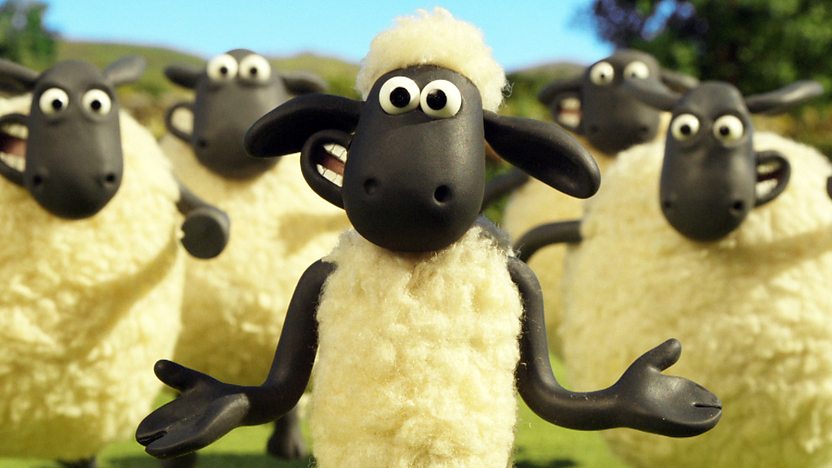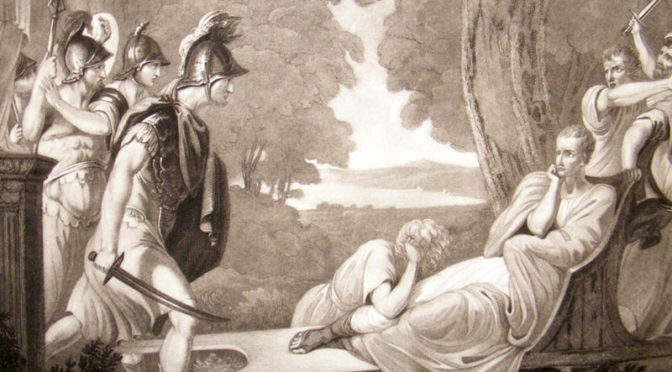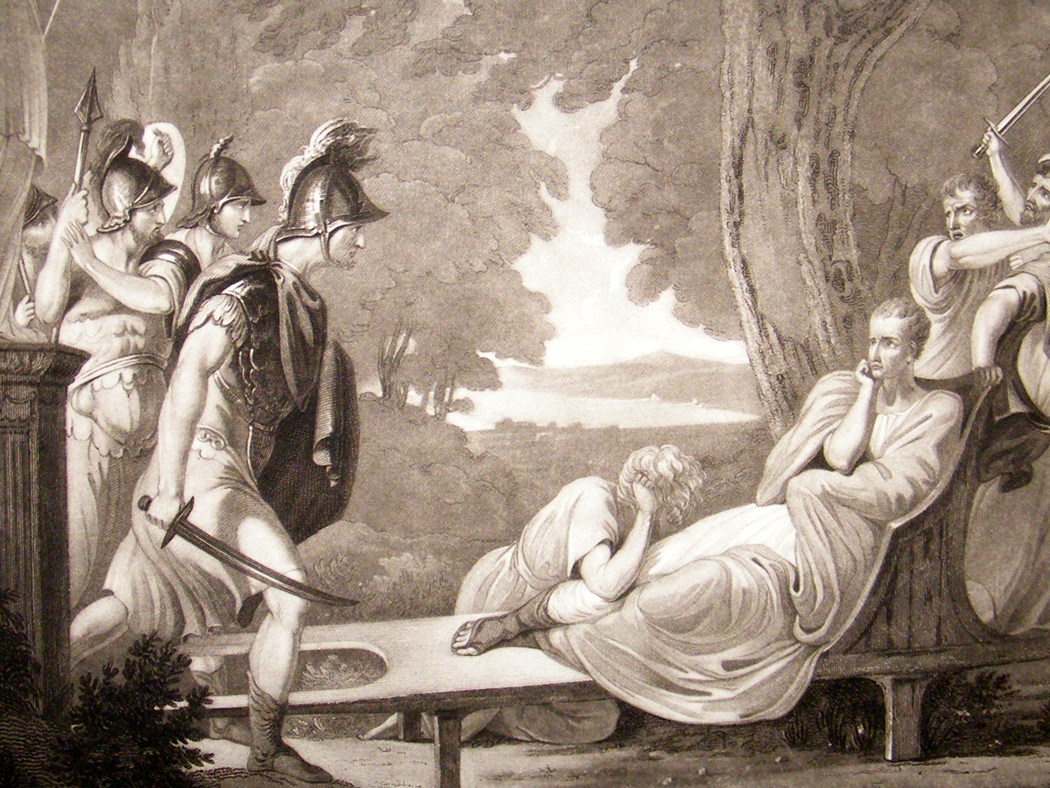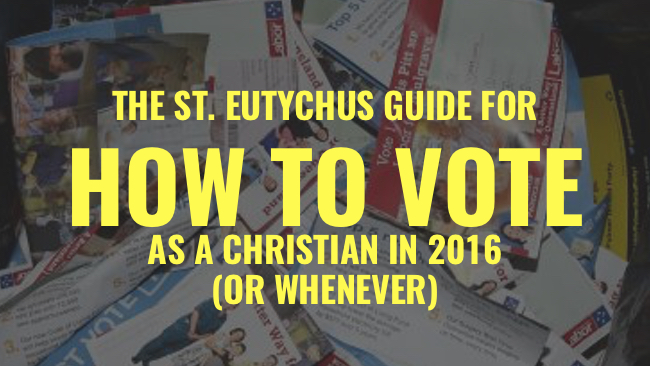John MacArthur has been in the news quite a bit in the last 12 months. But he’s been a phenomenon on the Christian web for many years. MacArthur’s influence has spawned many of the darkest parts of the Christian internet; watchbloggers, discernment trolls, and theobros out to destroy anybody who disagrees with their spiritual framework (mostly provided by Pastor John) like Jordan Peterson destroys everyone on YouTube. You find a fundamentalist internet outpost and do a word search (or try this one), or click the tag, for John MacArthur, and you’d be forgiven for thinking “Pastor John” is something like the Pope in these (typically) Baptist circles (which is ironic). His infallible reaction to Trump, to Covid (and church closures) and his hardlined, unwavering fundamentalism is admired from pillar to post. Even Pulpit and Pen, who hate everybody, love John MacArthur.
The pile of things I agree with John MacArthur on is outweighed by the mountain that I don’t.
But he’s a conviction pastor, and I can respect that. He names his convictions and he holds them. And that has integrity — and, in a time where prominent church leaders are being exposed for lacking integrity, I’d rather leaders were consistent and not hiding their beliefs behind a veneer of respectability (actual respectability would be next level). I respect MacArthur’s lack of respectability, and his consistency.
The same man who proudly proclaimed that President Donald Trump had called him to thank him for fighting in the courts to keep his megachurch open during a pandemic that has now claimed 500,000 lives in his country, has recently come out to proclaim that he doesn’t believe in religious freedom. He said:
“The new administration will uphold religious freedom? I don’t even support religious freedom. Religious freedom is what sends people to hell. To say I support religious freedom is to say I support idolatry, it’s to say I support lies, I support hell, I support the kingdom of darkness. You can’t say that. No Christian with half a brain would say, ‘We support religious freedom.’ We support the truth!”
Religious freedom is the hill to die on for lots of conservative Christians; and it is something that I think is pretty important to uphold in a secular democracy; because genuine religious freedom is what prevents sectarian politics that shoots for a theocracy at the expense of those who disagree. It’s what stops us living in a Catholic, or Muslim, or Presbyterian state (even while, on a technical level, it’s not clear why we in Australia are not an Anglican state, except for systematised pluralism…).
The TL;DR summary of all this is if you’re a MacArthur in the closet, you should come out. Stop pretending religious freedom is your goal, or a good thing, if you don’t believe it, especially if you’re closeted because it is expedient or allows you to push for more worldly power. And if you’re not a MacArthur in the closet, then you’re actually a pluralist (in some form) and you might need to expand your definition of ‘religion’ in order to fully embrace religious freedom as a civic good (while holding your own theological convictions about what is true and good), or be able to describe why you want to limit the freedom of others (and not be limited yourself).
The thing is, in my observation lots of the people who lobby for religious freedom in a country like Australia actually mean ‘Christian Freedom,’ this is true with the exception, I think, of the lobby group Freedom For Faith, who have, in the main, profoundly understood the landscape here, although perhaps have too narrow a definition of what constitutes ‘religious’.
Tara Isabella Burton’s Strange Rites unpacks a little of the problem with some of our thinking about religious freedom, and what ‘religious’ means, when we limit it to institutional religions rather than spiritual commitments and the pursuit of some vision of the good through acts of worship. She suggests that for the emerging generations in the secular, liberal, west, religion functions much more broadly and in a ‘remixed’ way where people harness ‘religiosity’ in their pursuit of an authentic self and self-understanding. She says, for example, that the essence of a religion for these ‘Remixed flocks’ is that it provides “four elements: meaning, purpose, community, and ritual.” And that they are “intuitional” rather than “institutional”
“By this, I mean that their sense of meaning is based in narratives that simultaneously reject clear-cut creedal metaphysical doctrines and institutional hierarchies and place the locus of authority on people’s experiential emotions, what you might call gut instinct.”
This feels true (see what I did there) — and — if our democracy is genuinely secular (that is ‘without an official religion’) and democratic — then our understanding of “religious freedom” and what is being navigated and protected has to navigate the landscape where both institutional and intuitional religious freedoms are protected and balanced. Presbyterians have religious convictions, and so too do those people for whom the pursuit of LGBTIQA+ rights and recognition have taken on those religious characteristics (connected to meaning, purpose, community, and ritual).
Christians, more than anybody, should be seeing these modern communities of meaning and purpose as ‘religious’ because our understanding is that to be human is to worship something; and that the issues with human behaviour is that we’re prone to wander towards idols — worshipping created things, rather than being moved to wonder at God’s glory from the things he has made. That’s Romans 1. Right there. Idolatry, as Pastor John recognises, is religious. And to support religious freedom is to allow idolatry. MacArthur is right. But we might be allowing idolatrous worship in order to allow people to pursue true worship, as we hope to be those who worship in Spirit and in truth.
Religious freedom is a necessary outworking of a commitment to reciprocity — the sort of ‘love your neighbour as you love yourself’ reciprocity; and an outworking of epistemic humility. If we are all worshippers — and we are all, as Paul says in Athens, created and located so we might ‘reach out for God’ and perhaps find him, and if we are all prone to error in that search, and to idolatry, it is unlikely that any religious expression — including any particular denominational expression — has fully grasped the truth about God.
This isn’t to say that objective truth doesn’t exist, doesn’t matter, or shouldn’t be pursued — but it is to acknowledge our limitations as finite creatures, even in traditions that stack up the accumulated wisdom of many finite creatures, who are trying to know God through his revelation to us that, in Calvin’s conception, necessarily involves him ‘accommodating’ to our limits. We can’t, and won’t, ever wrap our brains and hearts around the entirety of who God is, or his love, or character — because we have puny human brains that are prone to self-seeking error, and even in the New Creation, with God’s unmediated presence, God will be gloriously, infinitely, overwhelming and we’ll have an eternity to keep knowing more of him.
Pluralism is required to even allow the ongoing presence of denominations other than your own and to recognise that in those theological distinctives, that can be quite substantial, there is simultaneously error and a quest for truth.
To not be a pluralist means to plant your flag in the ground and say “I am totally right, and everyone must agree with me.” To not be a pluralist, with integrity, is to be John MacArthur.
Now, it might be that there are boundaries where, at least for Christians, true belief is demarcated — they might be confessional, traditional, or catholic (in the broadest sense). For me, for example, the Trinity and the Divinity of Jesus, plus his life death and resurrection as described in the Gospels — those would be deal breakers where I would say to not hold those is to not be holding on to the essence of Christian belief. I’m also part of an institutional religious tradition where I have sworn to ‘assert, maintain, and defend’ the teachings of an institutional church (albeit one that sees liberty and conscience as important things for pursuing truth from God’s revelation in his word, rather than just human, institutional, traditions as binding). But, for those not holding my belief, I’m not sure the answer is to legislate away their ability to believe something other than what I believe (in fact, I am reasonably convinced that is not the answer). In fact, I’m reasonably convinced the answer is to legislate for the freedom for others to engage in the intutional and institutional quest for meaning, purpose, community and ritual; that is, I think religious freedom is really important and good and broad and essential for pluralism and secularism and democracy.
There is, also, the paradox of tolerance here — some religious convictions are beyond the pale, some are damaging and have no place in a democracy because they dehumanise parts of the ‘demos.’ The Old Testament is full of God’s anger at, for example, Molech worship and the violence, sacrifice of children, dehumanising debauchery and oppression carried out in the name of that god (and especially anger at Israel for jumping into bed with all these diabolical gods).
And our modern secular democracy makes all sorts of decisions about limiting freedoms in pursuit of the common good that we celebrate — the catch is, because we’ve become ‘beyond the pale’ and damaged children in our care, been complicit in violence and oppression — that sort of thing so that ‘limiting’ for the common good is now being applied to us (sometimes justly, like with the imposition, by the government, of new practices and regulations around child safety). It takes a certain sort of consistency to speak against that regulation as an interference of our religious freedom; and that’s not something I’ve seen much of. We also face limits around, say, our practices in a pandemic — and I am starting to see religious freedom type objections to singing restrictions, particularly in New South Wales. Whether those restrictions are ‘common sense’ or not, we’ve generally not been unhappy (unlike MacArthur) to have some of our freedoms restricted for the sake of our neighbour. Our freedoms aren’t totally unrestricted because we give up some rights in order to live responsibly as neighbours, and to care for vulnerable people in our communities — we Aussies also have a very low authority view of church community and membership, and so we aren’t imposing ‘restrictions’ on the religious freedoms of people in our churches (typically) — either through church discipline, or not letting people leave church communities (or change denominations, or convictions) as expressions of ‘religious freedom’…
I think we’d get a lot further in conversations about religious freedom if we were more committed to pluralism, and to extending those freedoms way beyond where we currently do — to gender dysphoric people who don’t share our theological convictions, to same sex couples who’d like to get married, and to various other communities we rail against. It’s a brave Christian in conservative churches who supports the building of mosques, or the rights of a community of Satanists to gather built on the principle of pluralism or religious freedom; but it takes real courage (it seems) to say ‘that gay couple should be allowed to get married as an expression of their convictions that are ultimately religious’ — that’s where our own ‘intuitional’ religion kicks in; where for so many Christians it seems that the thing that gives us meaning, purpose, community and ritual is not our ‘Christian’ practice, but our conservative politics (which isn’t to say that being a Christian is not a political calling; “Jesus is Lord” is a political statement that provides a certain amount of meaning, purpose, community and ritual). We conservative Christians fought the plebiscite like a political culture war — not as people committed to religious freedom as a broad and inclusive good, but as a political fight (where we refused to acknowledge, in the main, the religious convictions driving our own understanding of marriage; there was a deliberate strategy to argue in the secular world as though our definition of marriage was purely ‘natural’ and secular, while those arguing for redefinition were arguing more religiously — along the lines of meaning, purpose, community, ritual and also, I’d say, offering a ‘religious’ vision of the good). And now we fight for religious freedom as though it is purely defined by being able to tell people they can’t do things. Why don’t we try telling people why it is good to follow Jesus; why Jesus brings meaning, purpose, community and ritual as the heart of ‘true religion’ and a guide to the worship we were made for?
But I digress. It’s an important digression because while I don’t respect those who play the ‘religious freedom’ game while paying lip service to a pluralism they don’t practice; I do respect someone who says ‘pluralism is bunkum and religious freedom is promoting idolatry;’ to be a pluralist isn’t to celebrate that those around you who aren’t pursuing true worship — the worship of the triune God made possible by the Holy Spirit being poured out to unite us with Jesus as the Gospel is unleashed; to be a pluralist is to acknowledge that other people are free to choose their gods, and the consequences of that choice. Just like God allows idolatry (see, again, Romans 1). It’s not my job to change someone’s object of worship; it’s my job to worship in Spirit and in truth, and to trust that God will change hearts as the Spirit turns the hearts of people towards God. Once I recognise that this is not my responsibility, I am freed to live beside people, to love them, to serve them, to pray for them, and to enjoy them as good gifts from God in my life who are given life, and breath, and everything by the God who wants them to reach out for him, and perhaps find him (even in a city as full of idols as Athens). Idolatry isn’t cause for celebration; it can be cause for despair — like for Paul in Athens — but Paul doesn’t set about changing the legislation in Athens to forbid idol worship, he introduces Jesus as the way to know the “unknown God” (and, by the by, his speech to the Areopagus, the gatekeepers of the Pantheon, meets the conventions required to officially introduce a god to the plurality of options available in Athens).
Here’s the thing. I think most people who like John MacArthur actually agree with John MacArthur on religious freedom but don’t have the courage to name it.
I think most conservative Christians who are politically active don’t actually want pluralism or even a secular democracy. I think most progressive Christians who are politically active don’t actually want pluralism or a secular democracy either — and that they’d like to eradicate conservatives not just from the public table, but from the denominational tables they belong to (and this is true, too, within conservative denominations). But very few people will name it; because they’re busy ‘coalition building’ in order to support their own (institutional) interests; not in order to practice loving reciprocity that allows others to pursue their own religious intuitions.
This isn’t to say that confessional standards or institutional doctrines and traditions aren’t important — in fact, I suspect that in our intuitional age what should be fairly fixed has become contested and that lots of fights around the ownership of different denominational tables are actually power/property grabs, where it would be better for everybody just to generously schism into a plurality of traditions, or to set up ‘communions’ or denominations that are deliberately broad (ironically, I think the Presbyterians with our declaratory statement, and emphasis on liberty of opinion, are meant to be a much broader evangelical ‘Reforming’ tradition than the Big R Reformed types fighting to run our table would like us to be).
Their animating end game is the ‘city of man’ looking a whole lot like ‘the city of God’ (to use Augustine’s terms); this side of the eschaton. They aren’t particularly interested in the heart change required to see the overlap grow (the sort that would come through exercising our religious freedom in constructive ways that are small, and local, and person by person work from the bottom up, while allowing others to exist whose existence and religion they find offensive), they’re interested in the mechanics of power — the levers that can be pulled to get the results. And taking John MacArthur’s stance is not going to get laws changed in any properly secular democracy. It’s not politically expedient; it has no utility. It has a certain sort of respectable virtue — conviction and integrity — even if it is not necessarily built on wisdom or truth.
MacArthur even explicitly states that he is under no allusion that his stance will be effective; it is simply consistent with his pre-millennial eschatology.
“We don’t win down here, we lose. You ready for that? Oh, you were a post-millennialist, you thought we were just going to go waltzing into the kingdom if you took over the world? No, we lose here — get it. It killed Jesus. It killed all the apostles. We’re all going to be persecuted. … We don’t win. We lose on this battlefield, but we win on the big one, the eternal one… We will proclaim the exclusivity of the gospel, the unique revelation authority of Scripture. We’re not going to lobby for freedom of religion. What kind of nonsense is that? We are in the world to expose all those lies as lies. So this is just part of what’s been on my mind.”
He named it. With admirable clarity, theological consistency, and conviction. And I can respect that; most political Christian voices nail two of those three in any given moment. I once tried to tabulate how theological anthropology, one’s understanding of the Gospel, and one’s eschatology intersect in different political theologies (it’s not the most beautifully structured table ever). MacArthur has consistency all the way down. He’s out of the closet as a government-hating pre-millennialist fundamentalist who believes anybody who doesn’t share his views is an idolater. The only point where he isn’t yet out of the closet and consistent is identifying the point at which he is in fellowship with, or not in fellowship with, other traditions within the church; his theobros and discernment blogging friends put a fair bit of energy into trying to draw those lines for everyone though, based on his teaching being authoritatively ‘the southern baptist tradition’… which again, is ironic.
See, what’s interesting here, again, is that so much of the ‘Christian Right’ operates with a sort of dominionist/post-millennial belief that we are tasked with building the City of God here on earth; not with faithfully being God’s presence in our cities as we wait for ‘the Holy City, the new Jerusalem’ to come down from heaven on Jesus’ return ala Revelation 21. So much ‘Christian lobbying’ is towards that end. But try getting people to unpack their theological vision — their eschatology — and how that lines up with their politics and actions, and you get mud. Partly because there are a plurality of theologies, and eschatological models, out there that all produce different political visions but often the same political action (so we can have a coalition for marriage, religious freedom, or against conversion therapy laws, that includes Catholics and Muslims, or we’ll call a Trinity-denier a Christian because he agrees with our sexual ethic, but we can’t have Christian institutions that make space for progressive Christians (theologically or politically) to work together on common causes like the Environment or anti-bullying programs in schools, or even ‘coalitions’ with the LGBTIQA+ community to work on shared visions of the good, or our Indigenous community to work against systemic racism because that is ‘woke’). As it stands, ‘pluralism’ only works in one direction in the conservative ‘institutional’ religion – it’s to prop up institutional interests; and so often ‘religious freedom’ campaigning is the same (with, admittedly, a desire to see the religious commitments of adherents to these institutions protected in other institutions or workplaces)…
To name those differences though, within the church, especially within the conservative “Christian Right” would commit us to a certain sort of religious freedom or pluralism that we don’t like to practice outside the church, and, this is also true on the other pole; ‘progressive Christianity,’ but I write as a member of a conservative (theologically and politically) institution, one that, for example, joined the ‘Coalition for Marriage’ and publicly lobbied against conversion therapy laws in Victoria).
We’d have to admit either that those with different positions are welcome at the table of a ‘broad church’, or, that we don’t believe them to be Christians at all, such that we should oppose their speech (and again, MacArthur and his online cronies are more consistent on this front too). And where we share ecumenical fellowship — whether around progressive causes, or through shared coalescing around ‘the Gospel’ across institutional lines, we’d have to acknowledge that we are already practicing pluralism. And we have to acknowledge the tension that creates — that in that practice we maintain a clear sense of what we believe to be the ‘capital T’ truth we’re prepared to die for, but that we’ve managed to engage in pluralism without compromising that sense, although perhaps engaging in pluralism is actually a path to broadening one’s understanding of truth — because it involves listening to others. Then we need to stare down the questions around why if we are happy for Baptists or Catholics, to continue to exist and practice their institutional religiosity (and where we would oppose legislation that sought to limit their existence), we aren’t prepared to advocate for space to be made for more ‘intuitional’ religions — especially as those lines start to get quite murky with emerging intutional/institutional Christianity (ala the emerging church movement, or Pentecostalism).
The beauty of MacArthur coming out like this is that in a secular democracy, the polis now knows where he is coming from and has to decide whether to tolerate or accommodate his views. His intolerance of pluralism is exactly the test that pluralism needs; you’ll see voices from the Christian left trying to denounce and cancel him — not just in the civic space, but the church; you’ll see voices from the intolerant ‘hard secular’ world trying to restrict his freedoms beyond just asking his church not to gather during the pandemic, or to wear masks. Some of his crazier views will be exposed and people will be able to exercise their freedoms to find less crazy popes (or, hey, no pope at all).
